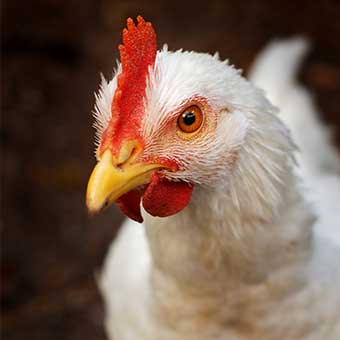USSEC Provides Technical Assistance to Trinidad and Tobago’s Poultry and Feed Producers for the Efficient Use of U.S. Soybean Meal in Poultry Diets
- Category:
- Animal Utilization
- General News

USSEC provided technical assistance to Trinidad and Tobago’s top broiler producers and feed mills on the efficient use of U.S. soybean meal in poultry diets. The four companies that received the technical assistance were Arawak, Master Mix, National Flour Mill and WGM Group. These companies buy around 85 percent of the total U.S. soybean meal imported into the country.
USSEC Animal Nutrition Consultants Carlos Campabadal and Fradbelin Escarraman conducted the technical assistance, of which the specific objectives were to show
the differences in nutrient content,
especially amino acids, of U.S. soybean
meal, compared to other soybean
meal sources; to teach how to use the
ideal protein ratio broiler and laying
hens; as well as to develop a poultry ingredients quality control program. During this activity, four presentations were delivered. Their titles were: “The Use of Growth Promoters and Feed Additives in Poultry Nutrition”; “Runting and Stunting Syndrome (RSS)”; “Quality Control Programs for Poultry Ingredients;” and “Feeding Broilers in the First 7 Days of Life.”
As a result of this technical assistance, poultry and feed producers were informed of the high nutritional value of U.S. soybean meal, the nutritional differences in nutrient composition between U.S. soybean meal versus Brazilian and Argentinian soybean meal, how to calculate the ideal protein ratio for broilers and laying hens, and that the best way to formulate poultry diets is by using a standardized ileal digestible amino acid content.
Furthermore, a feed quality control program for a feedmill was developed presenting the nutritional ingredient quality composition, laboratory analysis and feed restriction in broiler diets; the importance of evaluating the soybean meal for urease content, KOH solubility index, PDI and reactive lysine. Participants also learned how to produce a horse extruder feed, where U.S. soybean meal is used as the only source of protein together with lysine, and they learned nutritional tips to avoid horse health problems like laminitis and colicus.
In 2015, Trinidad and Tobago imported 54,100 metric tons (MT) of U.S. soybean meal. In 2016, this amount increased to 60,000 MT. The directors of these companies are predicting an increase in poultry production, which means that there will be more importation of U.S. soybeans. The poultry meat per capita consumption is around 57 kilograms, one of the highest in Latin America.

